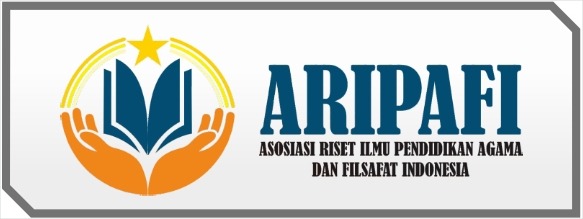Intellectual Education in the Qur'anic Perspective (Analysis of the Qur'an Surah Ali Imran Verses 190-191)
DOI:
https://doi.org/10.61194/ijis.v1i2.89Abstract
This research is motivated by the importance of using reason as a means of gaining knowledge. Therefore, it is necessary for the mind to get a good sense education for usefulness in accordance with the understanding of the concept of mind education contained in Ali Imran's letter verses 190-191. This research aims to find out the meaning of reason in an Islamic perspective and analyze the concept of reason education in the perspective of the Al-Qur'an Surah Ali Imran verses 190-191. This research is a descriptive qualitative research study of libraries (library research), by collecting data from various related sources and then analyzing it to draw conclusions. Research studies show that the meaning of reason in the Islamic perspective is a tool used for the thinking process. In this context of thinking, reason has a very important role, because it is able to achieve understanding, knowledge and awareness through stages that are scientific, empirical and philosophical. All of these processes are carried out on the basis of the Al-Qur'an and hadith, with the aim of advancing human life in this world. Meanwhile, the concept of intellectual education in the Al-Qur'an, Ali Imran verses 190-191, emphasizes the importance of using reason to reflect on and understand the signs of the greatness of Allah SWT. which is clearly seen in His creation. In this verse, Allah SWT. calls on people who have reason to observe the universe and the changes that occur in it as proof of His existence and power, both in terms of metaphysics, cosmology, ethics and aesthetics using the tafakkur and tazakkur methods. So that through this concept, perfect reason can be realized according to Islamic teachings.
References
Ahmed, F., Ul Amin, R., Nawaz, M., & Javed, A. (2018). A qur’anic view of mother tongue as the medium of education. Trames, 22(3), 299–309. https://doi.org/10.3176/tr.2018.3.06
Amelia, A., Indrawayanti, R. D., & Soleh, A. K. (2023). Perbandingan Akal, Nafsu, dan Qalbu Dalam Tasawuf. Raudhah Proud To Be Professionals : Jurnal Tarbiyah Islamiyah, 8(1).
Badi, J. A., Machouche, S., & Bensaid, B. (2017). Questioning styles in the Qur’ān and their impact on human thinking a conceptual analysis. Intellectual Discourse, 25, 553–574. https://www.scopus.com/inward/record.uri?eid=2-s2.0-85047651656&partnerID=40&md5=2811e995c5783f8d55fe415b96558e3f
Departemen Agama Republik Indonesia. (1990). Al-Qur’an dan Terjemahan Indonesia.
Febriyanti, N., Ihsani, F. A., & Hamdani, Much. S. (2021). Implikasi Akal dan Relevansinya dalam Mencapai Tujuan Pendidikan Islam. PAKAR Pendidikan, 19(1). https://doi.org/10.24036/pakar.v19i1.205
Handayani, A. B., & Suyadi, S. (2019). Relevansi konsep akal bertingkat Ibnu Sina dalam pendidikan Islam di era milenial. Ta’dibuna: Jurnal Pendidikan Islam, 8(2).
Huda, M. T., & Luthfiah, L. (2019). TOLERANSI MENURUT SYEKH ‘ABDURRAHMAN BIN NASHIR AL-SA’DI DALAM KITAB TAFSIR TAISIR AL-KARIM AL-RAHMAN FI TAFSIR AL-KALAM AL-MANNAN. Al - Tadabbur: Jurnal Ilmu Al-Qur’an Dan Tafsir, 4(01). https://doi.org/10.30868/at.v4i01.390
Jamaruddin, A. (2015). Exsistensi Fungsi Akal Manusia Perspektif Al- Qur’an. An-Nur, 4(1).
Jannah, R. (2017). Pemikiran Pendidikan Islam Hasan Al-Banna. Analytica Islamica, 6(1).
Marnewick, C., Meda, L., Condy, J., & Phillips, H. (2022). Using an intervention programme to empower intellectually disabled learners to use WhatsApp in a special needs unit in Cape Town, South Africa. Cogent Education, 9(1). https://doi.org/10.1080/2331186X.2022.2142447
Muntamah, S. (2020). PENGEMBANGAN PENDIDIKAN ISLAM DALAM PENGARUH KONSEP AKAL. Jurnal Terapung : Ilmu - Ilmu Sosial, 2(1). https://doi.org/10.31602/jt.v2i1.2930
Nasir, St. M. (2021). Ulul Albab Dalam Tafsir Al-Qur’an (Tafsir Tematik). Aqlam : Journal of Islam and Plurality, 6(2).
Nurmuhyi, M. A. (2016). PENDIDIKAN AKAL BUDI PERSPEKTIF AL-FARABI (Telaah Filosofis atas Pemikiran Pendidikan Al-Farabi). TARBAWY : Indonesian Journal of Islamic Education, 3(2). https://doi.org/10.17509/t.v3i2.4522
Padil, Moh. (2012). Ideologi Tarbiyah Ulil Albab. Http://Repository.Uin-Malang.Ac.Id/1208/.
Robin Sirait. (2021). Konsep Metafisika Perspektif Ibnu Sina Dalam Filsafat Pendidikan Islam. Jurnal Hikmah: Jurnal Pendidikan Islam, 10(2).
Sagen, L. M., & Ytterhus, B. (2014). Self-determination of pupils with intellectual disabilities in Norwegian secondary school. European Journal of Special Needs Education, 29(3), 344–357. https://doi.org/10.1080/08856257.2014.909174
Sousa, C., Neves, J. C., & Damásio, M. J. (2022). Empowerment and Well-Being Through Participatory Action Research and Accessible Gaming: A Case Study With Adults With Intellectual Disability. Frontiers in Education, 7. https://doi.org/10.3389/feduc.2022.879626
Sugiyono. (2016). Memahami Penelitian Kualitatif. Bandung: Alfabeta.
Tarigan, M., Audry, F., Tambunan, F. A. S., Pujiati, P., Badariah, N., & Rohani, T. (2023). Sejarah Peradaban Islam dan Metode Kajian Sejarah. Jurnal Pendidikan Tambusai, 7(1).






